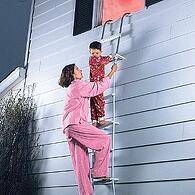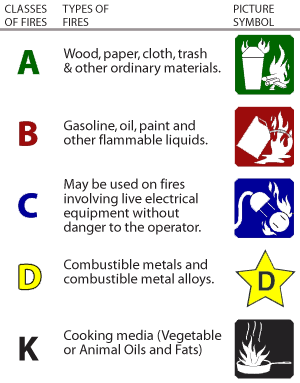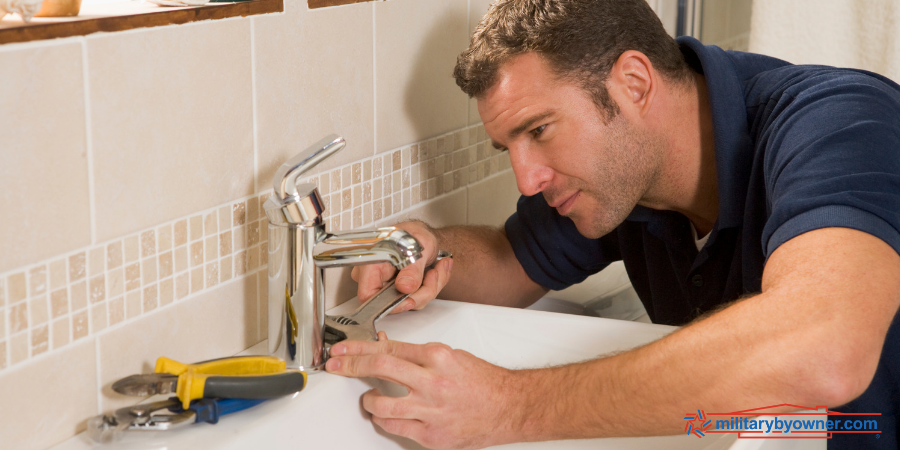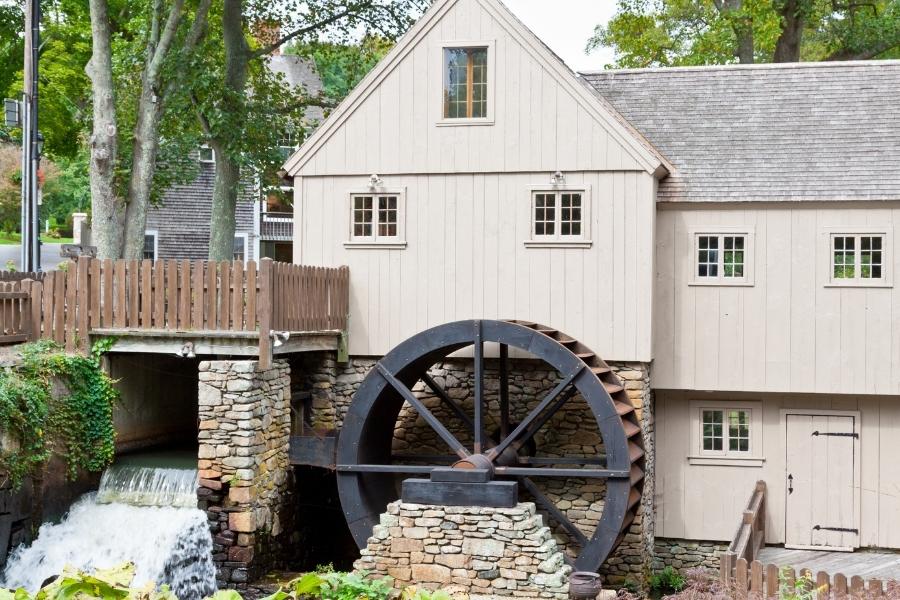Fire Safety Measures for Military Housing
 October is Fire Safety Month, and for military families that live in a variety of military homes, planning for emergency situations at each new home is essential to keeping your family safe.
October is Fire Safety Month, and for military families that live in a variety of military homes, planning for emergency situations at each new home is essential to keeping your family safe.
These easy tasks will give you piece of mind that your family will know what to do in the event of an emergency.
Check Smoke Detectors
We mentioned this important item in our “Fall Home Maintenance for Military Homeowners” post, but this item bears repeating. While smoke detectors fall into the “out of site, out of mind” category, it is crucial to ensure that when you need this safety item that it is operating properly. Changing the batteries and testing the units is a simple task that can protect your family by alerting you of potential danger. Many new homes have an interconnected alarm system, which activates all devices if a single unit detects smoke. If you live in an older home, you can purchase and install an interconnected smoke detecting system or choose to place detectors throughout the home.
If you are renting military housing, take the time to check the number of units, location and functionality of each smoke detector. If you are not satisfied with the number of units or suspect a defect, check with the landlord or property manager to address the issue immediately.
Purchase a Fire Extinguisher
According to the National Fire Protection Association, 42% of home structure fires originate in the kitchen; so placing a fire extinguisher under the sink or in an area that is easily accessed can greatly reduce structural damage to the home. However, not all extinguishers are intended for the same uses, so refer to the infographic for clarification on which extinguisher should be utilized in various areas of the home.
can greatly reduce structural damage to the home. However, not all extinguishers are intended for the same uses, so refer to the infographic for clarification on which extinguisher should be utilized in various areas of the home.
If you are unfamiliar with the operation of a fire extinguisher, consider purchasing an additional unit to use for practice and remember the acronym PASS: Pull the pin, Aim at the base of the fire, Squeeze the trigger, Sweep side to side.
Manufactures say that fire extinguishers last for 5 to 15 years, so it is best to write the date of purchase on the attached tag for future reference. If your extinguisher has a pressure gauge, check to make sure the unit still has full pressure. Replace the extinguisher if the pressure has dropped, if it is dented, rusted or if the nozzle is cracked.
Plan Escape Routes
As military families move from home to home, it is important to establish new escape routes and designated meeting place at each home. During an emergency, it is easy to forget the plan or to confuse it with a plan set up for a previous home. Draw out your floor plan marking at least two escape routes from each room and discuss the plan with your family making clear any variations or adjustments that will need to be made dependent on the location of the fire.
Discuss with children that they are not to stop to retrieve items before exiting the home. Demonstrate how to exit the home by staying low and covering your mouth and advise children to test closed-door handles for heat prior to opening.
Purchase Evacuation Tools
For multi-story homes, purchase a collapsible ladder that can be used to evacuate rooms from the upper floors of the home. Perform checks and maintenance of this equipment when you change batteries in smoke detectors to make sure it is functionally sound.
Open and close windows and screens to ensure that they are easy to operate and fully functional.
Perform Fire Drills
Fire drills are not just for elementary school! It is imperative that you and your family perform regular fire drills. Vary the time and day of your drills to see how each family member reacts and what potentially dangerous mistakes are made. Perform one in the dark of night to practice exiting the house in the dark. Evaluate your plan and execution after the drill and ask important questions such as; did everyone react in a timely manner and follow the predesigned escape routes and meeting place? Did anyone stop to retrieve personal items? What areas need to be reevaluated and what pieces of the plan worked well? Do not worry about what your neighbors might think when they see your family descending a ladder hung from an upstairs window or the embarrassment your teenagers might feel standing at the mailbox in their pajamas. These drills are the only way to ensure that your family is prepared in the event of a real emergency.
Take the Time Now
No one ever wants to believe that a house fire will happen in his or her home, but no one is free from this real life danger. Taking the time to prepare, plan and practice can mean the difference between life and death. Fire safety month is the perfect time to execute this simple plan that will protect your most prized investment, your family.

































